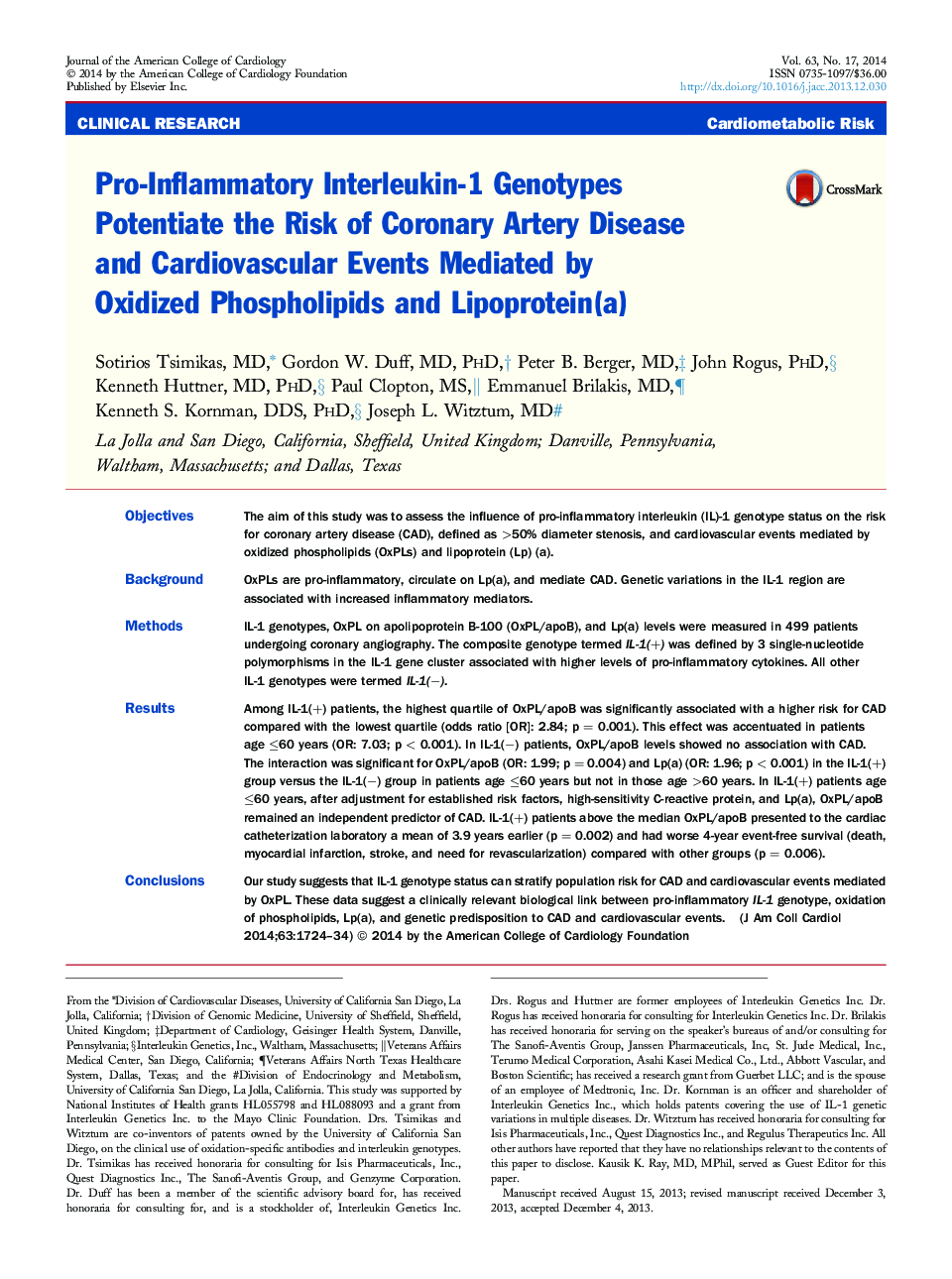| Article ID | Journal | Published Year | Pages | File Type |
|---|---|---|---|---|
| 2944278 | Journal of the American College of Cardiology | 2014 | 11 Pages |
ObjectivesThe aim of this study was to assess the influence of pro-inflammatory interleukin (IL)-1 genotype status on the risk for coronary artery disease (CAD), defined as >50% diameter stenosis, and cardiovascular events mediated by oxidized phospholipids (OxPLs) and lipoprotein (Lp) (a).BackgroundOxPLs are pro-inflammatory, circulate on Lp(a), and mediate CAD. Genetic variations in the IL-1 region are associated with increased inflammatory mediators.MethodsIL-1 genotypes, OxPL on apolipoprotein B-100 (OxPL/apoB), and Lp(a) levels were measured in 499 patients undergoing coronary angiography. The composite genotype termed IL-1(+) was defined by 3 single-nucleotide polymorphisms in the IL-1 gene cluster associated with higher levels of pro-inflammatory cytokines. All other IL-1 genotypes were termed IL-1(−).ResultsAmong IL-1(+) patients, the highest quartile of OxPL/apoB was significantly associated with a higher risk for CAD compared with the lowest quartile (odds ratio [OR]: 2.84; p = 0.001). This effect was accentuated in patients age ≤60 years (OR: 7.03; p < 0.001). In IL-1(−) patients, OxPL/apoB levels showed no association with CAD. The interaction was significant for OxPL/apoB (OR: 1.99; p = 0.004) and Lp(a) (OR: 1.96; p < 0.001) in the IL-1(+) group versus the IL-1(−) group in patients age ≤60 years but not in those age >60 years. In IL-1(+) patients age ≤60 years, after adjustment for established risk factors, high-sensitivity C-reactive protein, and Lp(a), OxPL/apoB remained an independent predictor of CAD. IL-1(+) patients above the median OxPL/apoB presented to the cardiac catheterization laboratory a mean of 3.9 years earlier (p = 0.002) and had worse 4-year event-free survival (death, myocardial infarction, stroke, and need for revascularization) compared with other groups (p = 0.006).ConclusionsOur study suggests that IL-1 genotype status can stratify population risk for CAD and cardiovascular events mediated by OxPL. These data suggest a clinically relevant biological link between pro-inflammatory IL-1 genotype, oxidation of phospholipids, Lp(a), and genetic predisposition to CAD and cardiovascular events.
